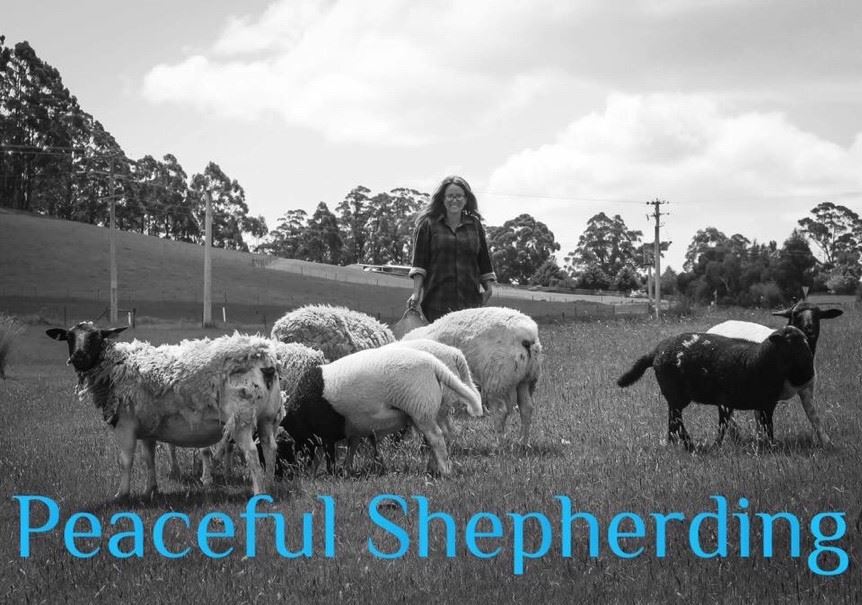Presented by Josephine Atkins
Low Stress Farming
 .
.
Farm management and training of domestic farm animals can be done with the least invasive intrusive, minimally aversive techniques using positive reinforcement as the basis for teaching.
Understanding species ethology and specific ethograms will help to minimise stress in management and improve safety in training for both the human and the animal.
The use of appropriate equipment for handling and training of specific behaviours & essential husbandry requirements is essential for the well being of farm animals.
Learning Objectives
· Understand the definitions of:
LOW STRESS,
LIMA,
ETHOLOGY
ETHOGRAMS
DOMESTICATION (and how this term is irrelevant to the “taming” and training of any species- all individuals deserve to be understood in their own right
· Brief over view of the following species’ ethograms that can make handling and training more challenging: Sheep, cattle, horses, chickens
· How understanding the ethogram of a species helps us to create environments that lessen stress and create calmer, happier animals
· Farm infrastructure and what works to aid in all of the above
· To gain some understanding of how to use Operant & Classical Conditioning with large animals in respect to having singular animals or a herd of animals
· The farm dog, another “set of hands”. Training of your dog and alternatives to using a dog to help muster/ herd stock.
· Why choose low stress farming practices
· What this talk is not going to discuss: the ethics of producing animals for food
About The Presenter
Josephine Atkins
Jo grew up on a mixed farm in Northern Tasmania.Weekends and holidays were very hands, on with herself and two sisters tagging along after their dad, herding and milking cows and all that accompanied work on a dairy farm. Hay carting, cleaning the dairy, moving irrigation, feeding out and tending to the calves on a daily basis during calving season.
The farm diversified into keeping pigs, and there were many pet pigs over the years along side tame dairy cows and pet sheep.
Even though it was a serious farming enterprise the girls were able to form relationships with many of the animals including their horses, the farm dogs and the feral cats that made their way to the sanctuary that was the huge hay shed on the farm.
Once leaving home to study Art at university, Jo moved her horses with her into the city and bought home her first real pet dog.
Skip forward to today and Jo and her new family have an 87 acre farm in Southern Tasmanian’s Huon Valley in Wattle Grove.
The farm is home to horses, Speckle Park cattle, some sheep including four pet ones & chickens.
Over the past ten years there has been a move towards making a conscious effort to manage and handle the farm animals in ways to minimise stress to the animals.
Gentle handling and management techniques are integral to the farms success.
When individual animals require teaching skills positive reinforcement is employed.
The farms’ horses are trained with the principles of Force Free training and live out doors all year in a herd of five.
Formal qualifications of a certificate IV in Veterinary Nursing and a certificate IV in Companion Animal Services have helped give Jo an insight into how her goals can be attained.
Learning and studying further to help humans and animals live along side each other is so important to make all lives worth living.
